FACULTY MENTORS
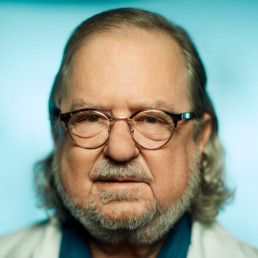
JAMES ALLISON, PHD
James (Jim) Allison is regental professor and chair of the department of Immunology and the executive director of the Immunotherapy Platform at The University of Texas MD Anderson Cancer Center. He holds the Olga Weiss Distinguished University Chair for Cancer Research and is deputy director of the David H. Koch Center for Applied Research in Genitourinary Cancers, Department of Genitourinary Medical Oncology. He is a director of the Parker Institute for Cancer Immunotherapy.
Allison’s research focuses on the mechanisms that govern T cell responses and applying that basic understanding to overcome cancer’s evasion of attack by the immune system. His fundamental discoveries led him to pioneer immune checkpoint blockade as a cancer treatment, working with pharmaceutical companies to develop Yervoy.
Allison explores combinations of immunological therapies and targeted drugs in preclinical studies to more effectively treat a variety of cancers. He continues basic research on immune stimulatory and inhibiting molecules.
The immunotherapy platform is part of MD Anderson’s Moon Shots Program, an ambitious effort to more rapidly reduce cancer deaths and suffering by developing advances in prevention, early detection and treatment based on scientific discoveries.
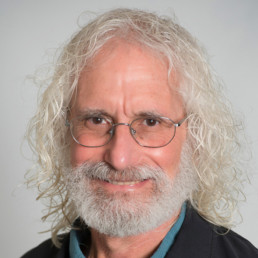
PHIL GREENBERG, MD
Phil Greenberg heads the Program in Immunology at the Fred Hutchinson Cancer Research Center and is a professor of medicine and immunology at the University of Washington. His research has focused on elucidating fundamental principles of T-cell and tumor interactions; developing cellular and molecular approaches to manipulate T-cell immunity; and translating insights from the lab to the treatment of cancer patients, with emphasis on adoptive therapy with genetically engineered T cells.
Dr. Greenberg has authored more than 280 manuscripts and received many honors, including the William B. Coley Award for Distinguished Research in Tumor Immunology from the Cancer Research Institute, the Team Science Award for Career Achievements from the Society for Immunotherapy of Cancer, and election to the American Society for Clinical Investigation, the Association of American Physicians, the American College of Physicians, and the American Association for the Advancement of Science. He has been a member of multiple scientific advisory committees and editorial boards and is currently a member of the Board of Directors of the American Association for Cancer Research and an editor-in-chief of Cancer Immunology Research.
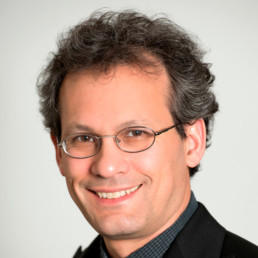
NIR HACOHEN, PHD
Symposium Director
Dr. Hacohen is the Director of the Center for Cancer Immunology at Massachusetts General Hospital, Co-Director of the Center for Cell Circuits at the Broad Institute of MIT and Harvard. and the David P. Ryan Professor of Medicine at Harvard Medical School. Dr. Hacohen is a recipient of the NIH Director’s Innovator award, the MGH Scholars Award and the Martin Prize. He is a founder of the Broad Genetic Perturbation Platform and Functional Genomics Consortium where powerful methods to study genes were developed and shared throughout the world. His work brings the powerful methods of human genetics and systems biology to the study of the immune system and cancer, and he is one of the pioneers in the field of systems immunology. He leads a group of immunologists, geneticists, biochemists, technologists and computational biologists to develop unbiased strategies to dissect immune responses in health and disease, and develop predictive and personalized approaches to medicine. His group addresses several major questions. How are immune responses against cancer initiated, maintained and evaded? What are the immune circuits that sense and control pathogens, such as viruses and bacteria? How does immunity against the body develop in autoimmune-prone tissues in lupus patients? His group also develops unbiased analytical strategies to develop novel real-world therapeutics, with completed and ongoing human clinical trials of personal neoantigen vaccines based on a computational analysis of the personal tumor genome.
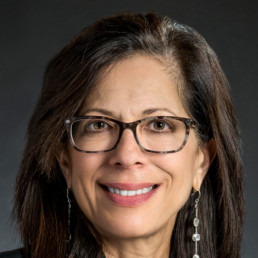
ELIZABETH JAFFEE, MD
Dr. Jaffee is an internationally recognized expert in cancer immunology and pancreatic cancer. She is Deputy Director of the Sidney Kimmel Comprehensive Cancer Center at Johns Hopkins, Co-Director of the Skip Viragh Pancreatic Cancer Center and Associate Director of the Bloomberg Kimmel Institute for Cancer Immunotherapy. Her research focus is on developing novel immunotherapies for the treatment and prevention of pancreatic cancer. Dr. Jaffee is a Past President of AACR. She has served on a number of committees at the National Cancer Institute including co-chair of the Blue Ribbon Panel that provided scientific advice to Vice President Biden’s Moonshot Initiative. She currently serves as chair of the National Cancer Advisory Board and Chief Medical Advisor to the Lustgarten Foundation for Pancreatic Cancer Research. She is the inaugural Director of the new Convergence Institute at Johns Hopkins. She was recently elected to the National Academy of Medicine.
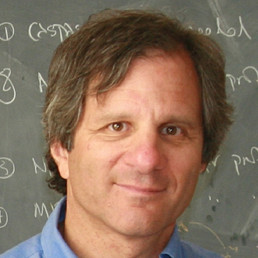
IRA MELLMAN, PHD
Ira Mellman came to Genentech in the Spring of 2007 as Vice President of Research Oncology, after more than 20 years as a faculty member at the Yale University School of Medicine, where he was chair of his department (Cell Biology), a member of the Ludwig Institute for Cancer Research, scientific director of the Yale Cancer Center, and Sterling Professor of Cell Biology and Immunobiology. Dr. Mellman has an AB from Oberlin College & Conservatory and a PhD in Genetics from Yale. He was a Postdoctoral Fellow at the Rockefeller University with Ralph Steinman, who won the Nobel Prize for his discovery of dendritic cells. Dr. Mellman’s laboratory is known not only for advances in fundamental cell biology particularly in the area of membrane traffic (including the discovery of endosomes) but also for applying these insights to understanding the cellular basis of the immune response. Of particular importance to cancer immunotherapy have been his laboratory’s pioneering contributions to elucidating how dendritic cells initiate immunity or maintain immune tolerance, forming the basis for efforts in cancer vaccines. More recently, his group has turned to elucidating how T cell signaling is regulated by immune checkpoints, and how personalized cancer vaccines and cell-based therapies can be used to enhance anti-tumor T cell responses. Ira ran all of oncology research at Genentech until the end of 2013 when he decided to concentrate his efforts on the rapidly developing area of cancer immunotherapy and became Vice President of Cancer Immunology. His group is responsible for having brought Genentech’s anti-PD-L1 antibody, Tecentriq® (atezolizumab), to the clinic; it is now an approved drug for bladder, triple negative breast cancer, small cell lung cancer, and non-small cell lung cancer. Yet, Ira remains a frustrated composer and songwriter, and has recorded two CDs in the little-known genre of “bio-rock”.
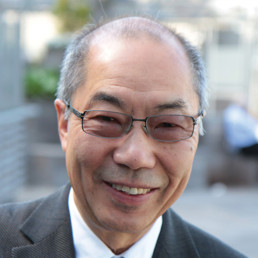
TAK MAK, PHD
Dr. Tak Mak is the Director of the Campbell Family Institute for Breast Cancer Research at the Princess Margaret Cancer Centre, and a University Professor in the Departments of Medical Biophysics and Immunology at the University of Toronto. Dr. Mak is best known as the lead scientist of the group that first cloned the genes encoding the human T cell antigen receptor, a discovery that provided essential insights into the molecular basis of cellular immunity. Dr. Mak’s current research is focussed on immune system cell functions and regulation, and the role of inflammation and neural regulation in the progression of autoimmune diseases and cancer. He is particularly interested in the molecular pathways underlying the survival, proliferation and death of normal and malignant cells. Currently, he is investigating the mechanisms of metabolic transformation used by cancer cells to fuel their uncontrolled growth, with the goal of identifying potential targets for novel cancer therapeutics.
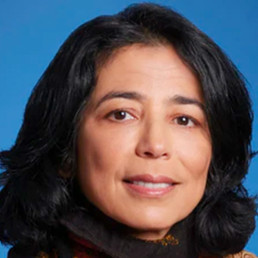
MIRIAM MERAD, MD, PHD
Dr Merad is the Mount Sinai Endowed professor in Cancer Immunology and the Director of the Precision Immunology Institute at Mount Sinai School of Medicine in New York. Dr. Merad also co-leads, the Cancer Immunology program at The Mount Sinai Tisch Cancer Institute and is the Director of the Mount Sinai Human Immune Monitoring Center (HIMC). Dr. Merad’s laboratory made seminal discoveries to our understanding of the mechanisms that control the development and functional identity of tissue resident dendritic cells and macrophages during homeostasis, and examining how these regulations are changed in cancer and inflammatory diseases. The overarching goal of her laboratory is to identify dysregulated pathways in macrophages and dendritic cells that can be harnessed to treat Cancer using both genetically engineered mouse models and human lesions to address these questions. To expand the understanding of immune cells contribution to human lesions, she founded in 2009, the human immune monitoring center at Mount Sinaito implement technology platforms to maximize information obtained from limited biological samples. In 2016, she took the leadership of the Precision Immunology Institute at the icahn School of Medicine (PrIISM) to continue to lead initiatives to enhance human immunology science. PrIISM integrates immunological research programs across 42 laboratories with synergistic expertise in biology, medicine, technology, physics, mathematics and computational biology which come together to frame novel questions to understand the contribution of immune cells to disease initiation, progression and response to treatment, to implement cutting edge technologies and to develop novel immunotherapy strategies for the treatment of human diseases. Dr. Merad has authored more than 170 primary papers and reviews in high profile journals. She receives generous funding from the National Institutes of Health (NIH) for her research on innate immunity and their contribution to human disease, and belongs to several NIH consortia. In 2018, Dr. Merad received the prestigious William B. Coley Award for Distinguished Research in Tumor Immunology. She is an elected member of the American Society of Clinical Investigation, and lectures around the world on her work.
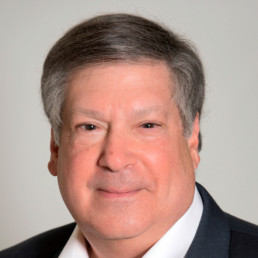
ROBERT SCHREIBER, PHD
Symposium Director
Dr. Schreiber is Alumni Professor, Pathology and Immunology; Professor, Molecular Microbiology; and Director, Center for Human Immunology and Immunotherapy Programs at the Washington University School of Medicine. He is also co-leader of the Tumor Immunology Program of Washington University’s Siteman Comprehensive Cancer Center, Director of the newly formed Washington University Center for Human Immunology and Immunotherapy Programs and an Associate Director of the Scientific Advisory Board to the Cancer Research Institute. Dr. Schreiber’s work has focused on elucidating the biochemistry and molecular cell biology of cytokines and defining the role they play in promoting immune responses to cancer. He was a postdoctoral fellow at the State University of New York in Buffalo, New York, as well as at The Scripps Research Institute in La Jolla, California.
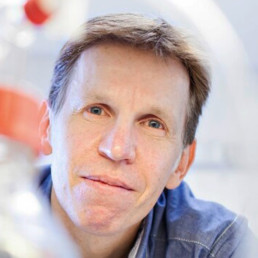
TON SCHUMACHER, PHD
Ton Schumacher is Principal Investigator at The Netherlands Cancer Institute, and Professor of Immunotechnology at Leiden University. Research of his lab focuses on the development of novel technologies with which T cell responses can be measured or manipulated, and the subsequent use of these technologies to understand how T cells can recognize and destroy human cancer. Work over the past years has described the role of the cancer neo-antigens that are formed as a consequence of DNA damage in human cancer immunotherapy and has identified novel regulators of immune – tumor cell interaction.
Schumacher is recipient of, amongst others, the Amsterdam Inventor Award (2010), Queen Wilhelmina Cancer Research Award (2014), San Salvatore Award (2014), Meyenburg Cancer Research Award (2015), and William B. Coley Award (2016). Schumacher is also co-founder of 4 biotechs that focus on the development of novel cancer immunotherapeutics and is a venture partner at Third Rock Ventures.

PADMANEE SHARMA, MD, PHD
Dr. Sharma is a nationally and internationally renowned physician scientist whose research work is focused on investigating mechanisms and pathways within the immune system that facilitate tumor rejection, with subsequent clinical benefit, or elicit resistance to immune checkpoint therapy. She is a trained medical oncologist and immunologist and the T.C. and Jeanette D. Hsu Endowed Chair in Cell Biology. She designed and conducted the first pre-surgical trial, also known as a window-of-opportunity trial, with immune checkpoint therapy (anti-CTLA-4) in 2004, which allowed her to study the impact of immune checkpoint therapy on human tumors, with subsequent identification of the ICOS/ICOSL pathway as a novel target for cancer immunotherapy strategies. Dr. Sharma continues to design novel pre-surgical trials to evaluate human immune responses to different immunotherapies and she is the Principal Investigator for multiple immunotherapy clinical trials that focus on translational laboratory studies. Her studies enable development of new immunotherapy strategies for the treatment of cancer patients. She is a Professor in the departments of Genitourinary Medical Oncology and Immunology, and the Scientific Director for the Immunotherapy Platform at M. D. Anderson Cancer Center. She is also the Co-Director of Parker Institute for Cancer Immunotherapy at MD Anderson Cancer Center. She is a member of the American Society for Clinical Investigation (ASCI) and received the Emil Frei III Award for Excellence in Translational Research in 2016 and the Coley Award for Distinguished Research for Tumor Immunology in 2018.

SHANNON TURLEY, PHD
Symposium Director
Dr. Shannon Turley received her PhD in Cell Biology from the Yale University School of Medicine in 1999. After teaching on the faculty in the Department of Biology at Bowdoin College for the 1999-2000 academic year Dr. Turley moved to Harvard Medical School where she carried out postdoctoral training in Immunology and Immunogenetics at Joslin Diabetes Center. Dr. Turley was recruited to the Department of Cancer Immunology and AIDS at Dana Farber Cancer Institute of Harvard Medical School as Assistant Professor in 2004 and promoted to Associate Professor in 2010. Focusing on immunology research at Harvard, Shannon established an international reputation as an expert in stromal immunobiology. During most of her tenure on the faculty, Dr. Turley served as the Associate Director of the PhD Program in Immunology. Throughout her career Dr. Turley has enjoyed teaching and mentoring trainees at the postdoctoral, graduate, undergraduate and high school levels.
In 2014, Dr. Turley was recruited to the Department of Cancer Immunology at Genentech as a Principal Scientist and Group Leader to build a tumor microenvironment/stromal immunobiology discovery research program with a focus on developing immunotherapeutics for treating patients with inflammatory diseases and advanced and metastatic cancers. In 2018 she was promoted to Staff Scientist at Genentech. Dr. Turley presently serves as a permanent member of the NIH Transplantation, Tolerance and Tumor Immunology Study Section and reviews grant applications for research foundations. She also serves on the editorial board for several journals including Journal of Experimental Medicine, Cancer Immunology Research and Scientific Reports. Dr. Turley has published over 115 peer-reviewed papers, invited reviews and book chapters and frequently lectures and presents her published research at conferences and universities around the world. She has been the recipient of a number of awards and honors. Dr. Turley was recently selected to receive the Frederick W. Alt Award for New Discoveries in Immunology from the Cancer Research Institute.
Now working in biotechnology with a focus on cancer immunotherapy, Dr. Turley applies principles established in rigorous basic science to making real-life medicines that positively impact cancer patient outcomes. She also continues her mentorship of trainees including postdoctoral fellows and students at the graduate and undergraduate levels.
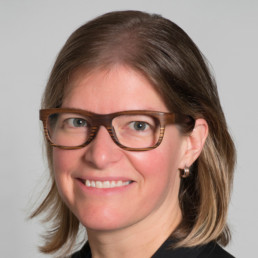
JENNIFER WARGO, MD
Professor Jennifer Wargo’s career commitment is to advance the understanding and treatment of disease through science. After completing her Medical Degree, she entered surgical residency training at the Massachusetts General Hospital/Harvard Medical School in Boston, Massachusetts where she became interested in the biology and treatment of cancer. During her training, she completed two fellowships in Surgical Oncology with a focus on immunotherapy for cancer. Dr. Wargo was recruited to the Division of Surgical Oncology at Massachusetts General Hospital in July 2008 and had an active research laboratory focusing on melanoma tumorigenesis and immunotherapy for cancer. In September 2013, Dr. Wargo was recruited by University of Texas MD Anderson Cancer Center to help lead the Melanoma Moon Shot program. With a joint appointment in Surgical Oncology and Genomic Medicine, Professor Wargo continues her critical research to better understand responses to therapy and to develop novel strategies to combat resistance. This includes her groundbreaking recent work elucidating the role of the gut microbiome in shaping responses to immunotherapy in patients with melanoma – with a manuscript describing this work published in Science and a clinical trial underway exploring optimal methods to manipulate the gut microbiome to enhance responses to cancer therapy. She is recognized internationally as a leader in cancer research, and is leading innovative efforts globally.
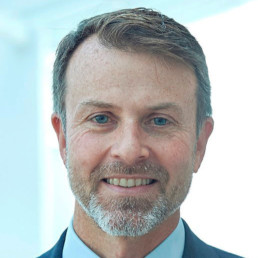
E. JOHN WHERRY, PHD
Dr. E. John Wherry is the Barbara and Richard Schiffrin President’s Distinguished Professor, Chair of the Department of Systems Pharmacology and Translational Therapeutics in the Perelman School of Medicine and Director of the UPenn Institute for Immunology. Dr. Wherry received his Ph.D. at Thomas Jefferson University in 2000 then did postdoctoral research at Emory University with Dr. Rafi Ahmed from 2000-2004. Dr. Wherry was appointed Assistant Professor in 2005 in the Immunology Program at The Wistar Institute and then joined the Department of Microbiology in the University of Pennsylvania’s Perelman School of Medicine in 2010. He became the Director of the Institute for Immunology in 2012 and Chair of the Department of Systems Pharmacology and Translational Therapeutics in 2018. Dr. Wherry has received numerous distinctions and honors for his consistent and significant contributions to immunology, infectious disease and cancer research including the Distinguished Alumni award from the Thomas Jefferson University, the Cancer Research Institute’s Frederick W. Alt Award for New Discoveries in Immunology and the Stand Up To Cancer Phillip A. Sharp Award. Dr. Wherry has over 190 publications in top international journals. He has an H-Index of 87 and his publications have been cited over 43,000 times.
Dr. Wherry’s research has pioneered the field of T cell exhaustion – the fundamental mechanisms by which T cell responses (and likely those of other immune cells) are shut off or attenuated during chronic infections and cancer. His discoveries helped to identify the role of the “checkpoint” molecule PD-1 and the ability to block this pathway to reinvigorate exhausted T cells. His group was also one of the first to demonstrate that targeting multiple co-inhibitory receptors simultaneously could synergistically improve therapeutic efficacy, a foundation for current combination immunotherapy efforts in humans. Dr. Wherry’s work has also created the transcriptional and epigenetic atlas of exhausted versus functional T cell biology and this atlas of information has led to numerous mechanistic discoveries that helped define exhausted T cells as a distinct immune lineage. Finally, his laboratory has been a pioneer in using transcriptomics, high dimensional cytometry, and systems immunology approaches to study immune oncology, human vaccine responses and human infectious disease. Ongoing work in his laboratory focuses on applying transcriptional, epigenetic, single cell and systems immunology approaches to study exhausted T cells and other immune cells in health and disease.
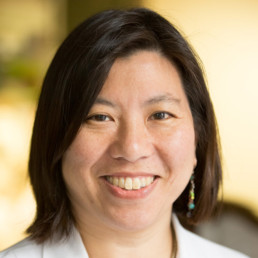
CATHERINE WU, MD
Catherine J. Wu, MD is a Professor of Medicine and Chief, Division of Stem Cell Transplantation and Cellular Therapies at the Dana-Farber Cancer Institute, Boston. She received her M.D. from Stanford University School of Medicine and completed her clinical training in Internal Medicine and Hematology-Oncology at the Brigham and Women’s Hospital and Dana-Farber Cancer Institute in Boston, MA. Shejoined the staff at the Dana-Farber Cancer Institute in 2000.At DFCI, she has initiated an integrated program of research and clinical activities that focuses on dissecting the basis of effective anti-tumor immunity. Her laboratory has focused on the use of genomics-based approaches to discover immunogenic antigen targets and to understand the molecular basis of therapeutic response and resistance. She has led early phase clinical trials to test personalized tumor vaccines in melanoma and glioblastoma.
FACULTY FACILITATORS
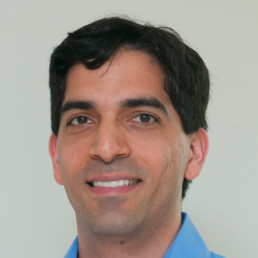
SHAWN DEMEHRI, MD, PHD
Shawn Demehri, MD, PhD is an Assistant Professor at the Center for Cancer Immunology and Cutaneous Biology Research Center at Massachusetts General Hospital/Harvard Medical School. Dr. Demehri is a physician-scientist performing basic science and translational research in the area of cancer immunoprevention related to skin, breast and other epithelial cancers. His research is focused on determining the role of the immune system in maintaining normal tissue homeostasis and preventing the early stages of cancer development. Dr. Demehri is a recipient of several awards including American Academy of Dermatology Young Investigator Award, American Society for Clinical Investigation Young Physician-Scientist Award, Burroughs Wellcome Fund Career Award for Medical Scientists, Breast Cancer Alliance Young Investigator Award, Cancer Research Institute CLIP Award, Kimmel Scholar Award and NIH Director’s Early Independence Award.
